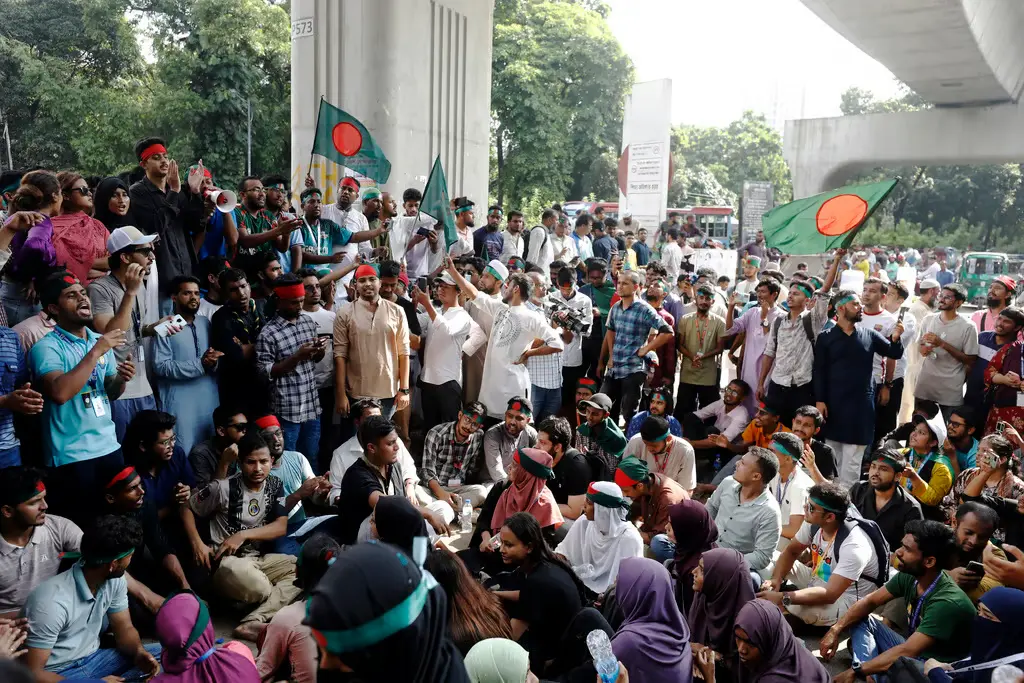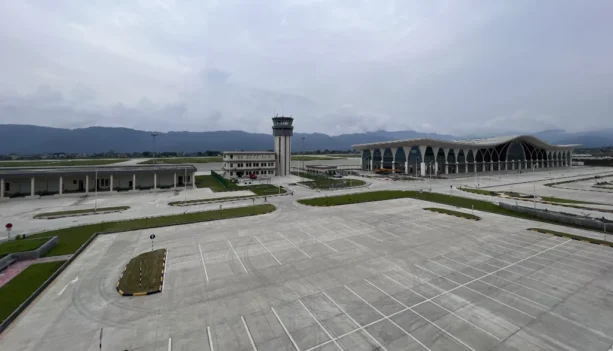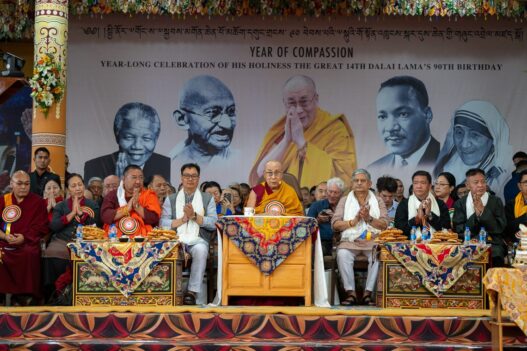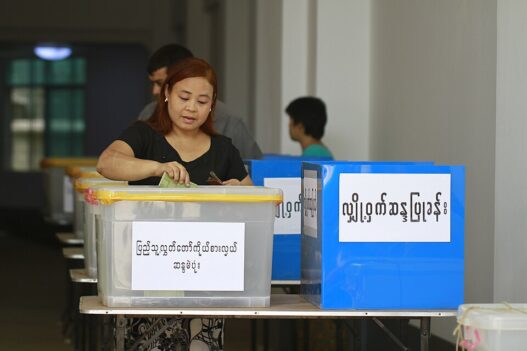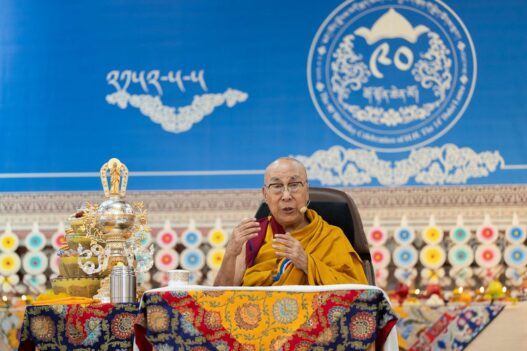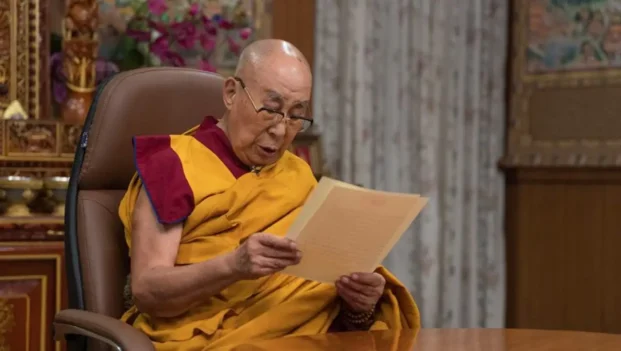-BNP’s claims of improving India-Bangladesh relationship cannot erase its anti-India legacy-
As life in Bangladesh tentatively limps back to normalcy after recent unrest, tension, fear, and the apprehension of further violence against religious minorities, particularly Hindus, continue to simmer beneath the surface. The sight of young students managing traffic on the streets of Dhaka brings a faint glimmer of hope amidst the looming shadows of darkness cast by the mindless violence that has engulfed the nation.
Today, Bangladesh’s landscape is a chaotic mix of systematic atrocities against Hindus, protests demanding justice and protection, and the widespread circulation of misinformation on social media. The original goals of the protests—restoring democracy and peace—have been overshadowed by these troubling developments.
Amidst this turmoil, there are also heart-warming scenes of solidarity, with Muslims, including those from Madrassas, standing guard in front of Hindu temples and Christian churches. Local Hindus have reported that many Muslim leaders and heads of Madrassas have pledged to come to the aid of their Hindu, Christian, and Buddhist neighbors at the first sign of trouble. However, they also say that much of this an “eyewash,” as when darkness descends, the attacks happen so suddenly and with such precision that there is no time to react. “It all looks like a very planned thing,” says Ismail a resident of Shahbag, Dhaka who has witnessed such attacks.
These developments have compelled none other than the head of the interim government, Muhammad Yunus, to condemn the crimes against Hindus as “heinous,” urging students not to allow vested interest groups to undermine their hard work. Yunus has been meeting with representatives of Hindu groups, who have presented an eight-point list of demands. These demands include the establishment of a fast-track tribunal for swift trials in cases of attacks on Hindus, the urgent enactment of a minority protection law, the upgrading of the Hindu Religious Welfare Trust to a foundation, the modernization of the Pali Education Board, the declaration of a five-day holiday during Sharadiya Durga Puja, and the establishment of a Ministry of Minority Affairs. Since the ouster of former Prime Minister Sheikh Hasina on August 5, over 205 attacks against religious minorities have been reported across 52 districts, prompting the interim government to express “grave concern” over the situation.
Ironically, even as the interim government acknowledges the impact of the violence and the threat it poses to the movement’s objectives, there are those within influential circles who choose to remain in denial. A Bangladesh Nationalist Party (BNP) leader, in an interview with NDTV, denied that the attacks on Hindus were part of a “systemic agenda,” claiming instead that “some people” were trying to exploit the situation. However, he neither identified these “some people” nor acknowledged the role of radical organizations like Jamaat-e-Islami, instead diverting attention by suggesting that India should do more to address the issue. Others have compared India’s record of atrocities against minorities with that of Bangladesh, asserting that Bangladesh remains peaceful except during periods of political upheaval.
Such statements ignore the long history of the BNP and Jamaat-e-Islami in actively promoting anti-India campaigns. The BNP’s traditional anti-India stance dates back to its foundation in 1975 under former President Ziaur Rahman, who portrayed the Indira-Mujib friendship treaty as “a treaty of slavery.” This stance persisted through the Ershad regime and into Khaleda Zia’s tenures in power. During her time in office, from 1991-1996 and again from 2001-2006, Bangladesh became a safe haven for insurgent groups from India’s northeastern states. The soil of Bangladesh was effectively used by numerous insurgent outfits, most notably the United Liberation Front of Asom (ULFA), to launch attacks on Indian security forces and run extortion networks.
Khaleda Zia has also been openly unwilling to allow India to emerge as a regional power. Her government opposed significant agreements such as the Ganges Water Sharing Treaty signed with India in 1996 and the Chittagong Hill Tracts Peace Accord signed in 1997 with Parbatya Chattagram Jana Sanghati Samiti. More recently, her son and BNP leader Tarique Rahman launched the ‘India out’ campaign, aimed at boycotting Indian goods, a move that was widely seen as an attempt to appease Islamist radicals like Jamaat-e-Islami and Hefazat-e-Islam.
Bangladeshi writers have cited the work of eminent scholars like political scientist Professor Rounaq Jahan, who argued in her book Political Parties in Bangladesh that the BNP’s political positions were deeply rooted in its traditional anti-Indian posture, one of its foundational stances under Ziaur Rahman.
Thus, when commentators suggest that the Indian establishment should not put all its eggs in one basket by supporting Sheikh Hasina and the Awami League, it raises the question: when was the BNP ever ready to offer its basket to India? Even now, as the BNP speaks of India’s importance in helping to rebuild Bangladesh, the past and recent campaigns, such as the ‘India out’ movement, serve as a stark reminder that India must tread carefully.
The Jamaat-e-Islami and Hefazat-e-Islam are eager to implement their hardline agendas, turning Bangladesh into an Islamic republic and enforcing Sharia law, leaving little room for democracy. Given the current state of affairs and the trajectory of events in Bangladesh, it is crucial for students, activists, and intellectuals to sift through the noise and distinguish between those genuinely striving for democracy and those exploiting the situation for more sinister purposes.
For now, as the situation unfolds in Bangladesh, minorities remain doubtful whether the future will be any better than it was under former Prime Minister Hasina. Hindu students, who participated in protests to oust Hasina, now fear for their own safety, feeling caught between radicals targeting Hindus and potential retaliation from Awami League supporters for opposing Hasina’s government. The history of Bangladesh’s political changes is filled with stories of attacks on Hindu minorities. During any government transition or election, Hindus and other minority religious groups often become targets of violence, systematically carried out by supporters of various political parties.
In this fragile and volatile environment, the survival of Bangladesh’s democracy and the protection of its minorities hinge on the ability of its people to discern the true motivations behind the ongoing unrest.

